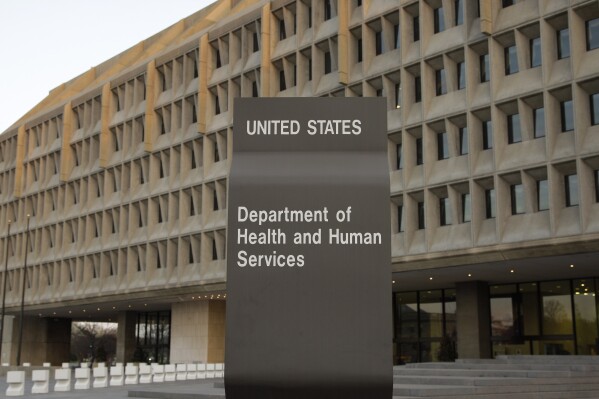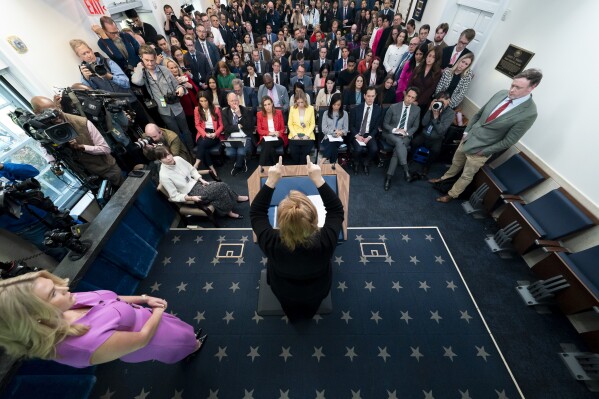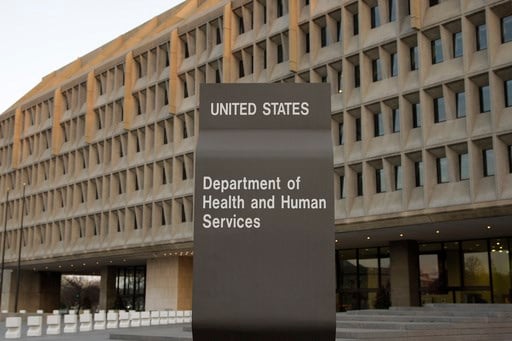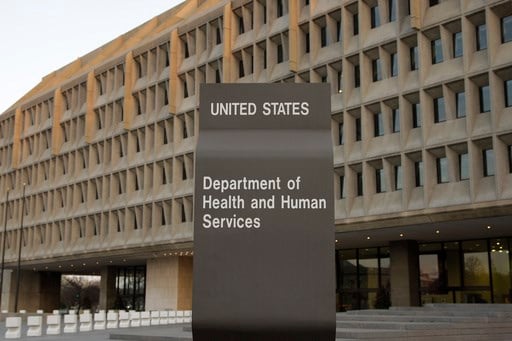“A Healthcare Crisis Looms: Proposed Budget Cuts Threaten to Devastate America’s Most Vulnerable Communities
In a move that has left healthcare advocates reeling, the latest draft budget plan has revealed a chilling proposal to drastically slash funding across federal health programs. According to a recent report by the Associated Press, the proposed cuts would have far-reaching consequences, impacting millions of Americans who rely on these critical services for their well-being.

As Congress grapples with the nation’s rising debt and fiscal challenges, the proposed budget plan has ignited a heated debate over the future of America’s healthcare system. While some argue that these cuts are necessary to balance the books, others warn that they would exacerbate existing healthcare disparities, pushing already vulnerable populations to the brink.

The Consequences of Cuts to the National Institutes of Health

The proposed budget cuts to the National Institutes of Health (NIH) would have a significant impact on biomedical research. With a reduction of $20 billion from its current budget, the NIH would be forced to eliminate or reduce funding for various research programs.
One of the most concerning aspects of the proposed cuts is the potential elimination of specialized institutes and centers. The NIH is currently home to 27 institutes and centers, each dedicated to a specific area of research. The proposed reorganization would reduce this number to just eight, leading to a loss of expertise and resources in critical areas such as disease treatment and prevention.
The implications of these cuts would be far-reaching. The NIH plays a critical role in funding research that leads to the development of new treatments and therapies for diseases. Without adequate funding, this research would be severely impacted, leading to delays in the development of new treatments and potentially even the loss of life.
Jeremy Berg, a University of Pittsburgh professor and former director of an NIH institute, emphasized the importance of NIH funding: “I just have not heard anybody say, ‘We wish the government would spend less money trying to cure cancer or trying to deal with Alzheimer’s,'” he said. “Yet that’s what the $20 billion budget cut will mean.”

Elimination of Specialized Institutes and Centers
Some of the institutes and centers that could be eliminated or reduced under the proposed budget cuts include:
-
Institute of Heart and Lung Health
-
National Diabetes Institute
-
Skeletal and Skin Institute
The elimination of these institutes and centers would not only have a significant impact on the research community but also on patients and families affected by these diseases.
Cuts to Other Key Health Agencies
In addition to the NIH, other key health agencies would also be affected by the proposed budget cuts. The Food and Drug Administration (FDA) would see its budget reduced by nearly half a billion dollars, with some longtime agency responsibilities being eliminated and shifted to states.
The Centers for Disease Control and Prevention (CDC) would also be severely impacted, with its core budget slashed to about $5 billion from more than $9 billion. This would result in the elimination of several programs and the transfer of others into a new agency called the Administration for a Healthy America.
Elimination of Programs
Some of the programs that could be eliminated or reduced under the proposed budget cuts include:
-
National Center for Chronic Disease Prevention and Health Promotion
-
CDC programs on adolescent health, reproductive health, cancer prevention, heart disease and stroke prevention, and smoking prevention
-
Nutrition, physical activity, and obesity programs
The elimination of these programs would have significant consequences for public health and the nation’s healthcare system.
The Human Cost of Budget Cuts: Real-Life Implications
The proposed budget cuts to the NIH and other health agencies would have a significant impact on patients and families affected by chronic diseases. The potential for increased morbidity and mortality would be a direct result of these cuts, as critical research and treatment programs are eliminated or reduced.
The consequences of these cuts would be far-reaching, affecting not only individuals but also communities and the nation as a whole. The loss of expertise and resources in critical areas of research would lead to delays in the development of new treatments and potentially even the loss of life.
As David Harvey, executive director of the National Coalition of STD Directors, emphasized: “We are taking it very seriously. It’s an important indication about what the administration is thinking about.”
Conclusion
In conclusion, the draft budget plan proposed by the administration has sent shockwaves throughout the healthcare community, as it seeks to implement drastic cuts across federal health programs. The plan, which aims to reduce spending by hundreds of billions of dollars, would have far-reaching consequences for vulnerable populations, including low-income families, children, and the elderly. The proposed cuts to Medicaid, the Children’s Health Insurance Program (CHIP), and the Affordable Care Act (ACA) would not only jeopardize access to healthcare for millions of Americans but also undermine the very fabric of the nation’s healthcare system.
The significance of this proposal cannot be overstated. It would fundamentally alter the social contract between the government and its citizens, abandoning the most vulnerable members of society to fend for themselves in a system that is already stacked against them. The long-term implications of such a plan would be devastating, leading to increased healthcare disparities, decreased health outcomes, and a rise in preventable deaths. Moreover, the economic consequences would be equally severe, as the healthcare industry is a significant contributor to the nation’s GDP and employment.
As we look to the future, it is essential that policymakers and citizens alike recognize the gravity of this proposal and its potential consequences. We must come together to reject this draconian plan and instead work towards a healthcare system that is equitable, accessible, and affordable for all. As we move forward, let us remember that the true measure of a society is not its wealth or power, but its ability to care for the most vulnerable among us. The question before us is clear: what kind of society do we want to be?